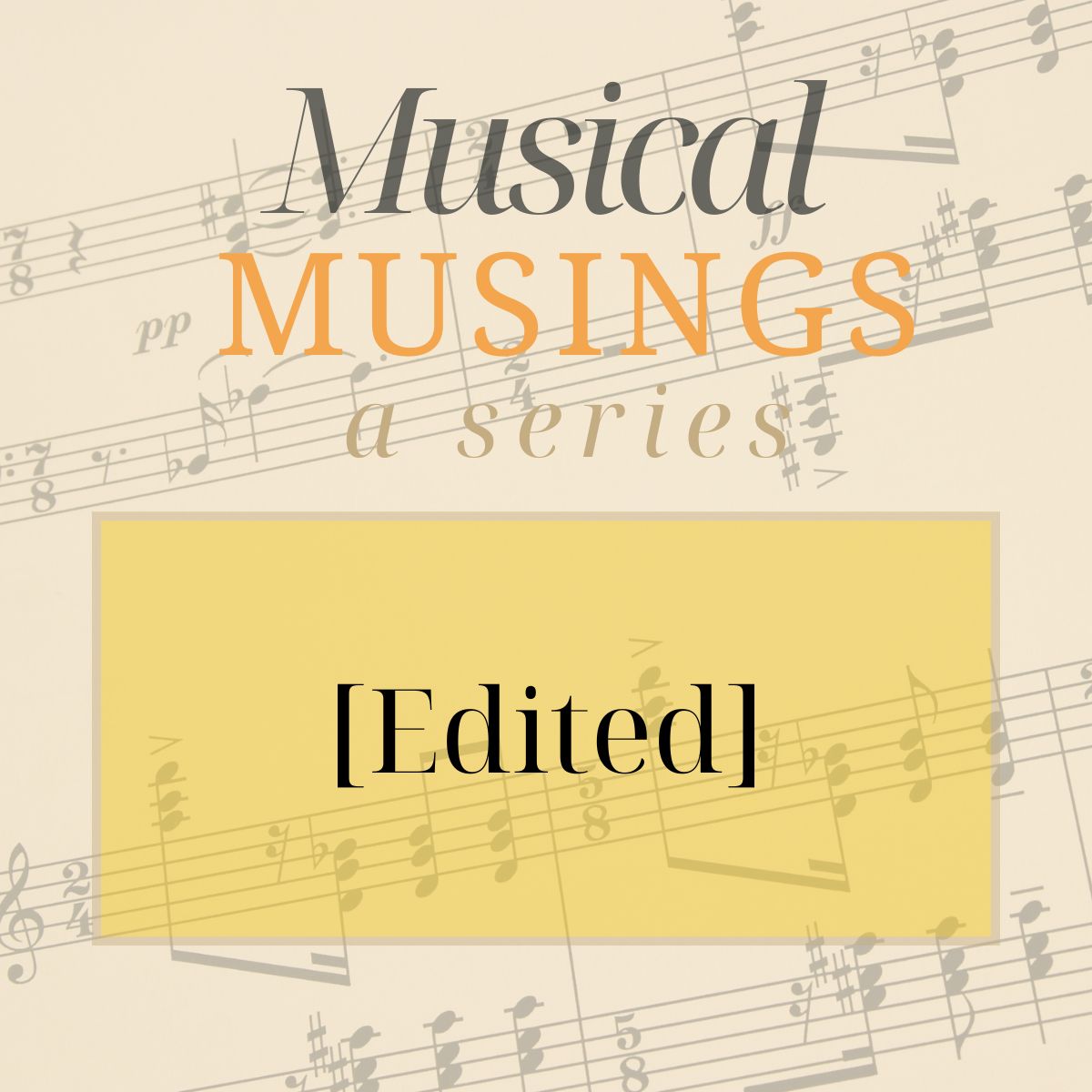
“[T]o be suitable for use in the Liturgy, a sung text must not only be doctrinally correct, but must in itself be an expression of the Catholic faith… liturgical songs must never be permitted to make statements about faith which are untrue.” – Sing to the Lord, 83
There’s a number of songs whose lyrics routinely trip me up. Whenever a publisher revises a song and makes changes to the lyrics, I always have to stop and ask, “Why?” More often than not, there’s something that was awry that needed attention theologically. Sometimes it’s obvious. When the verses of “Canticle of the Sun” were changed from “Praise to the Sun, the bringer of day” to “Praise for the Sun,” it seems, at least to me, perfectly reasonable. After all, we praise God for the sun, we do not worship the sun itself. Others get more complicated, and at least to me, feel unnecessary. There is a push amongst composers, liturgists, and publishers to avoid putting the first-person words of Christ into the voice of the Assembly. Again, the notion is that we, naturally, are not God. Therefore, it seems, on the surface, “wrong” for us to sing “I am the bread of life.” Is this take correct? Possibly, but it feels more pedantic than practical. After all, the words we are singing are a direct quote from Jesus – what can be more scripturally sound than that? To make matters worse, the enforcement of these changes is uneven and unbalanced. If we look at the published versions in Breaking Bread and Gather, the song entitled “I am the bread of life” contains this exact wording, while the communion hymn, “Eat This Bread” has been edited to “Christ is the bread of life.” The latter always feels clunky to me, I’m sure in no small part because I’ve been singing the original version for decades, and change is hard.
The ones that I have the hardest time with, though, are the ones where multiple versions are still in print, and still being used. The Incarnation choir closet is stocked with octavos for Laurence Rosania’s song “The Supper of the Lord,” with the refrain “Precious body, precious blood, here in bread and wine…” Every time I sing this same song at Most Blessed Sacrament, I get tripped up when I see the words printed in Breaking Bread, “Precious body, precious blood, seen as bread and wine.” Does this change reflect a more complete picture of the miracle of transubstantiation taking place in the Eucharist? Perhaps. There is a mantra of the church, “lex orandi, lex credendi.” or “the words we pray are the words we believe.” The natural extension of this is that the words we sing need to correctly reflect the theology we claim as Catholics. This is a key part of the judgement that music must be “scriptural, liturgical, and pastoral” – the soundness of a hymn must be rooted in the soundness of it’s scriptural, theological words.
Knowing this, however, doesn’t make it easier to forget years and years of repetition. Good music and good theology is important. But that doesn’t exempt it from also being messy and difficult at times.
Please accept this invitation to participate more fully, more actively, in our parish’s music ministry. If you are interested in singing in the choir, leading the congregation as a cantor,
or enriching our liturgy as an instrumentalist, email Shawn Gelzleichter at sgelzleichter@gmail.com or call the rectory at 781-662-8844.